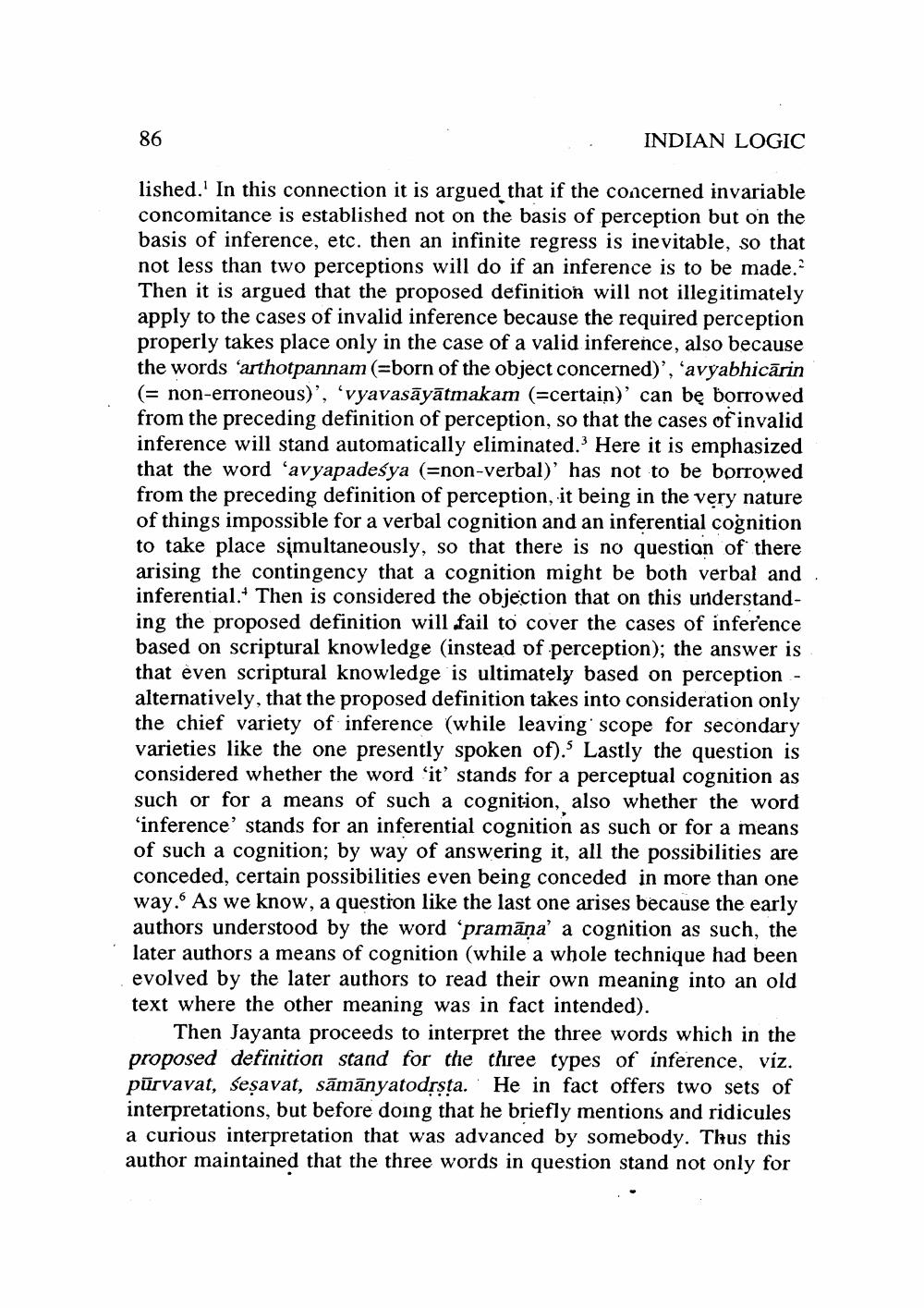________________
86
INDIAN LOGIC
lished. In this connection it is argued that if the concerned invariable concomitance is established not on the basis of perception but on the basis of inference, etc. then an infinite regress is inevitable, so that not less than two perceptions will do if an inference is to be made. Then it is argued that the proposed definition will not illegitimately apply to the cases of invalid inference because the required perception properly takes place only in the case of a valid inference, also because the words ‘arthotpannam (=born of the object concerned)', 'avyabhicārin (= non-erroneous)', 'vyavasāyātmakam (=certain' can be borrowed from the preceding definition of perception, so that the cases of invalid inference will stand automatically eliminated.' Here it is emphasized that the word 'avyapadesya (=non-verbal)' has not to be borrowed from the preceding definition of perception, it being in the very nature of things impossible for a verbal cognition and an inferential cognition to take place simultaneously, so that there is no question of there arising the contingency that a cognition might be both verbal and inferential. Then is considered the objection that on this understanding the proposed definition will fail to cover the cases of inference based on scriptural knowledge (instead of perception); the answer is that even scriptural knowledge is ultimately based on perception - alternatively, that the proposed definition takes into consideration only the chief variety of inference (while leaving scope for secondary varieties like the one presently spoken of). Lastly the question is considered whether the word 'it' stands for a perceptual cognition as such or for a means of such a cognition, also whether the word 'inference' stands for an inferential cognition as such or for a means of such a cognition; by way of answering it, all the possibilities are conceded, certain possibilities even being conceded in more than one way. As we know, a question like the last one arises because the early authors understood by the word 'pramāna' a cognition as such, the later authors a means of cognition (while a whole technique had been evolved by the later authors to read their own meaning into an old text where the other meaning was in fact intended)
Then Jayanta proceeds to interpret the three words which in the proposed definition stand for the three types of inference, viz. pūrvavat, sesavat, sāmānyatodrsta. He in fact offers two sets of interpretations, but before doing that he briefly mentions and ridicules a curious interpretation that was advanced by somebody. Thus this author maintained that the three words in question stand not only for




